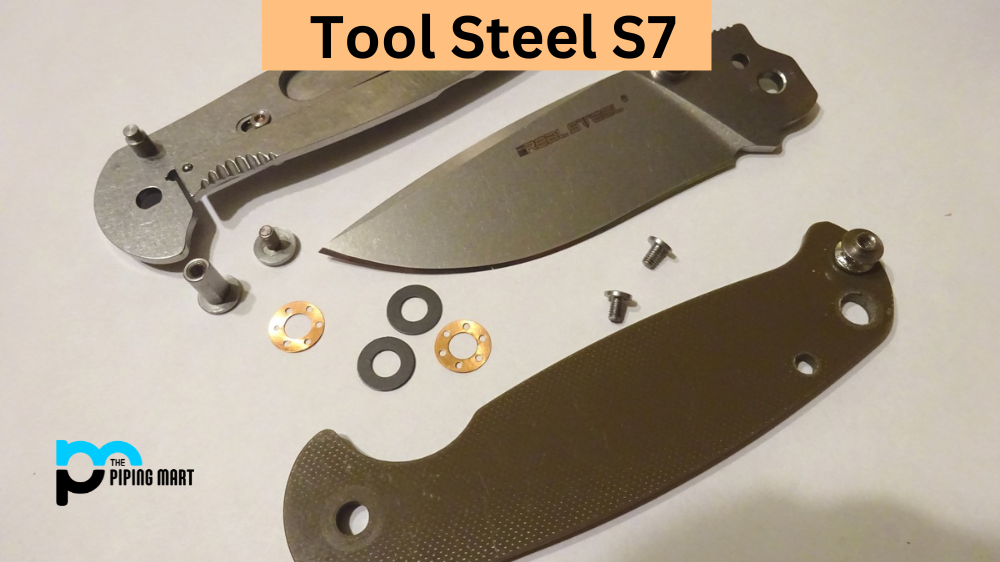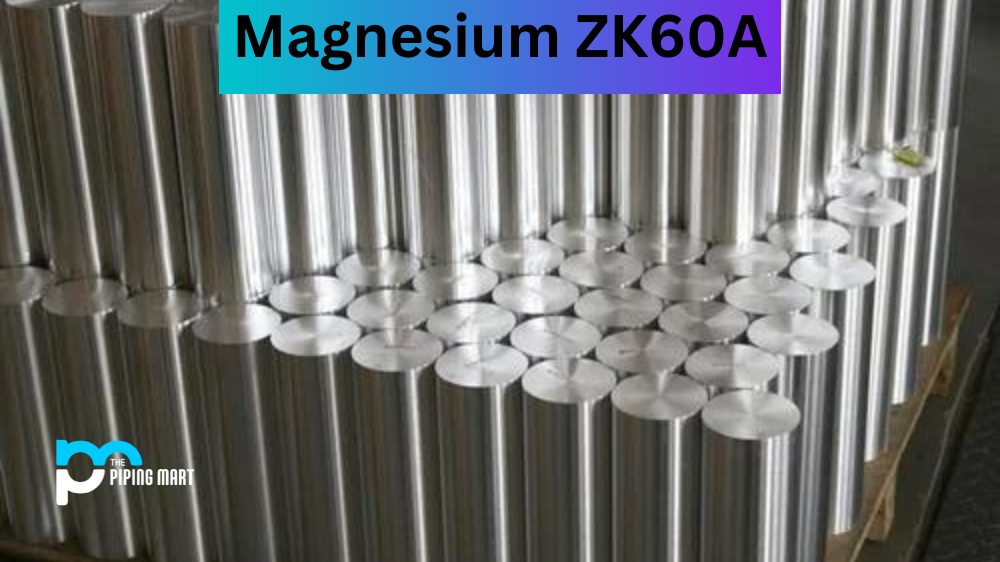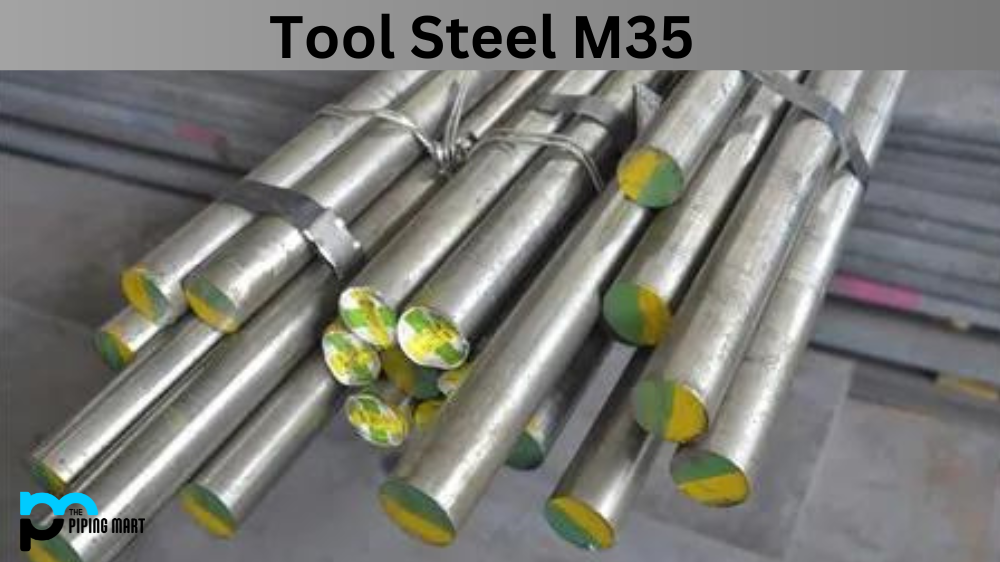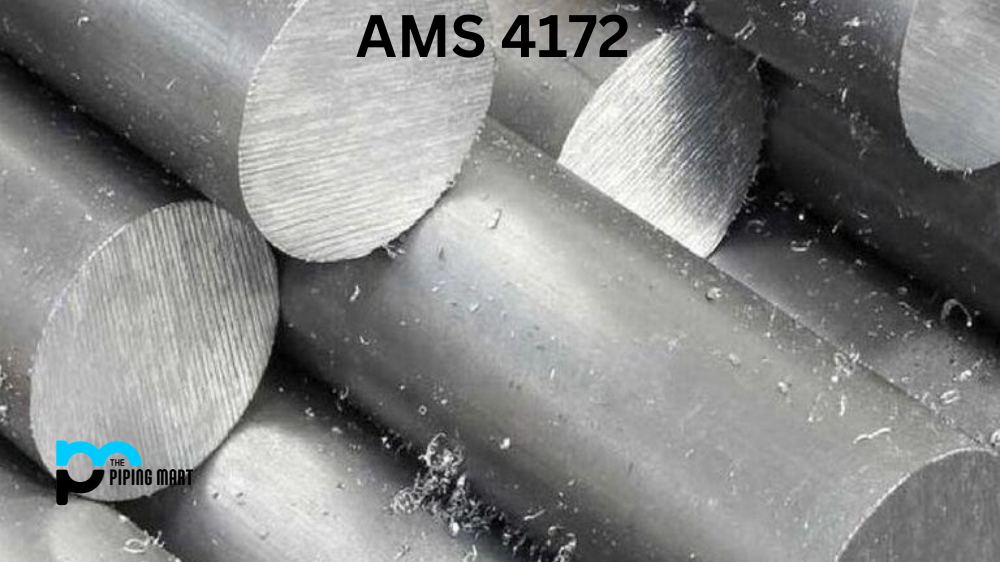Tool steel S7 is a versatile and reliable tool steel that can be used for various purposes. UNS T41907 is renowned for its heat resistance, machinability, and corrosion resistance, making it a popular choice in many industries. A tough and durable material, AISI S7 Tool Steel, also known as UNS T41907 and SAE-AISI S7 steel, is popular among industrial manufacturers for its unique composition and impressive properties. Composed primarily of carbon, chromium, silicon, and molybdenum, this steel possesses exceptional toughness, wear resistance, and shock resistance, making it ideal for tasks that require extreme durability and reliability. In addition to these impressive features, S7 Tool Steel exhibits excellent machinability and high heat resistance, making it a top choice for various industrial applications. Whether used to produce complex machinery, precision tools, or high-performance injection molds, S7 Tool Steel is a vital material in the manufacturing industry, offering unbeatable strength and durability for diverse needs. Let’s take a closer look at tool steel S7 and how it works.
What Forms of S7 Tool Steel is Available at Piping Mart?
- Nut
- Bar
- Bolt
- Pipe
- Screw
- Tubing
- Valves
- Washers
- Flanges
- Fasteners
- Electrodes
- Stud Bolts
- Sheet Plates
- Pipe Fittings
- Forged Fitting
- Instrumentation Fittings
S7 Tool Steel Composition
|
Element
|
Content (%) |
|---|---|
|
Iron, Fe
|
93.85 |
|
Carbon, C
|
0.45-0.55 |
|
Manganese, Mn
|
0.20-0.80 |
|
Silicon, Si
|
0.20-1.00 |
|
Chromium, Cr
|
3.00-3.50 |
|
Molybdenum, Mo
|
1.30-1.80 |
|
Vanadium, V
|
0.20-0.30 |
|
Copper, Cu
|
0.25 |
|
Phosphorus, P
|
0.03 |
|
Sulfur, S
|
0.03 |
S7 Tool Steel Physical Properties
| Properties | Metric | Imperial |
|---|---|---|
| Density | 7.83 g/cc | 0.283 lb/in3 |
S7 Tool Steel Mechanical Properties
| Properties | Metric | Imperial |
|---|---|---|
| Hardness, Rockwell C (air cooled from 941°C, 649°C temper temperature) | 41 | 41 |
| Hardness, Rockwell C (air cooled from 941°C, 449°C temper temperature) | 53 | 53 |
| Hardness, Rockwell C (air cooled from 941°C, 149°C temper temperature) | 57 | 57 |
| Modulus of elasticity | 207 GPa | 30000 ksi |
| Charpy impact (V-notch; air cooled from 941°C; 425°C temper temperature) | 13.6 J | 10.0 ft-lb |
| Charpy impact (V-notch; air cooled from 941°C; 649°C temper temperature) | 16.3 J | 12.0 ft-lb |
| Charpy impact (V-notch; air cooled from 941°C; 200°C temper temperature) | 16.9 J | 12.5 ft-lb |
| Machinability (1% carbon steel) | 70.0 – 75.0% | 70.0 – 75.0% |
| Poisson’s ratio | 0.27-0.30 | 0.27-0.30 |
S7 Tool Steel Thermal Properties
| Properties | Conditions | ||
|---|---|---|---|
| T (°C) | Treatment | ||
| Thermal expansion | 12.6 x 10-6/ºC | 20-200 | – |
S7 Tool Steel Equivalents
- ASTM A597
- ASTM A681
- UNS T41907
S7 Tool Steel Uses
Tool steel S7 is mainly used in applications that require shock resistance, vibration dampening, and extreme durability. This type of tool steel is commonly used for forging dies, punches, chisels, screws, hammers, shear blades and more. It can also be used in the production of plastic injection moulds as well as for cold-work operations such as blanking, or punching dies due to its excellent wear resistance.
S7 Tool Steel Uses in Industries
Automotive Industry
One main industry that utilises S7 tool steel is the automotive industry. This type of steel is used to make various components such as dies, punches, and molds for car parts. Its high strength and wear resistance make it ideal for these applications, ensuring long-lasting and reliable performance.
Aerospace Industry
S7 tool steel is also commonly used in the aerospace industry due to its ability to withstand extreme temperatures and resist deformation under high stress. It is often used to make cutting tools, blades, and other critical aircraft engine and structure components.
Manufacturing Industry
In manufacturing, S7 tool steel is widely used for making machine parts such as gears, shafts, and spindles. Its toughness and shock resistance makes it suitable for heavy-duty applications where constant impact or stress may occur.
Tooling Industry
As its name suggests, S7 tool steel is popular for making tools such as drills, cutters, and chisels. Its hardness allows it to maintain sharp edges even under heavy use, making it a preferred material in the tooling industry.
Medical Industry
In recent years, there has been an increase in the use of S7 tool steel in the medical industry due to its biocompatibility and high strength-to-weight ratio. It is commonly used in surgical instruments and medical devices that require durability and precision performance.
S7 Tool Steel Corrosion Resistance
Tool steel S7 is highly resistant to corrosion from most chemicals and water-based solutions. This makes it an ideal choice for use in environments where there is exposure to high levels of humidity or corrosive materials such as acids or alkalis. It also has excellent weldability and can be easily cut with any standard cutting process, such as plasma or laser cutting.
S7 Tool Steel Heat Resistance
One of the main benefits of using tool steel S7 is its heat resistance. This tool steel has an extremely high melting point, allowing it to withstand temperatures up to 2200°F (1204°C) without any softening or loss of strength. Additionally, this type of material offers excellent thermal shock resistance, which means that it will not degrade quickly when exposed to sudden changes in temperature like some other metals can.
S7 Tool Steel Heat Treatment
In order to maximize the properties of tool steel S7, it must be properly heat treated before being put into use. Heat treatment involves heating the material up to certain temperatures depending on what results are desired from the material before cooling it back down slowly over time. Heat treating this type of metal will increase its hardness while maintaining its toughness and wear resistance so that it can perform better during heavy-duty operations such as machining or drilling operations where speed and precision are essential factors for success.
S7 Tool Steel Machining
The machinability rating for tool steel S7 is rated at 50%, meaning that this type of metal can be easily machined using standard cutting techniques with minimal effort required compared to other types of metals with lower machinability ratings, such as stainless steel or aluminium alloys, which may require specialized tools or equipment in order to achieve the desired results efficiently without causing any damage to the material itself or the machine being used during operation.
Conclusion:
In conclusion, tool steel S7 is an ideal choice for applications that require high levels of durability and performance under extreme conditions such as high temperatures or heavily corrosive environments due to its superior heat and corrosion resistance qualities along with its easy machinability rating, making it easy for operators to work with this type of metal quickly and efficiently with minimal effort required compared to other types of metals available on the market today! With these advantages comes a higher cost than traditional metals, but if you’re looking for extra performance, then investing in Tool Steel S7 should definitely be considered!

A passionate metal industry expert and blogger. With over 5 years of experience in the field, Palak brings a wealth of knowledge and insight to her writing. Whether discussing the latest trends in the metal industry or sharing tips, she is dedicated to helping others succeed in the metal industry.




